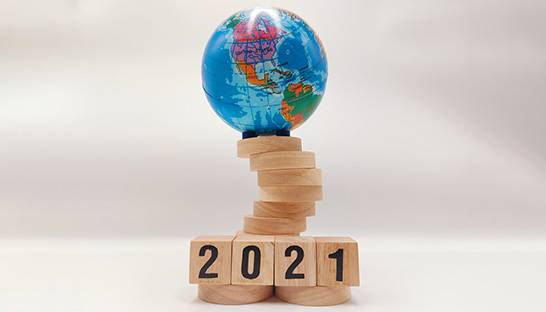The year 2021 was a distinct period characterized by several global issues that had long-lasting effects. Although the pandemic was still felt, there were additional crises emerging that were transforming economies, politics, and people’s lives everywhere. The human systems were once again proved to be fragile. From climate crises to geopolitical competition, there was an evident need for cooperation.
In this article, we will tackle the important global risks of 2021 alongside their causes, effects, responses, and aid thinking for a more protected future.
The Key Global Risks of 2021
1. The Impact of COVID-19 is Still Being Felt
In 2021, COVID-19 headlines were still affecting people worldwide, especially with the new variations of the virus emerging. Even with vaccines bringing hope in the future, the distribution of the doses was evident. Some advanced economies garnered the supplies first, while many developing economies faced shortages. This continues to back global inequalities.
The aftermaths of the pandemic still persists even with healthcare crises, worker displacement, and public debt reaching new heights. Economists noted a K-shaped economy. The wealthy economies were able to rebound while the vulnerable were left in a dire state.
Long Term Effects
• Dissatisfaction revolving around perceived inequalities can lead to an increased chance of social unrest.
• Altering work culture and labor shortages have left businesses working overtime to rethink their future plans revolving a potential workforce.
• Nations might have a harder time investing in building critical sectors like education and health care due to the overwhelming debt they possess.
2. Global Competition and Climate Change
2021 was the year climate change and its adaptation turned into a contest between powerful nations rather than a mutual global effort and this was the year nations like the EU, South Korea, and China stepped up and pledged to be carbon neutral. The race towards green technology innovation fostered intense national rivalry as everyone wanted to dominate it.
The urgency behind taking decisive actions was reinforced by major climate events such as wildfires in the US, unprecedented heatwaves in Asia, and Europe’s devastating flood. However, the challenge from these fractured priorities remains the coordination of global measures.
Long term Implications
•Failure to take climate change action can result not only to the loss of lives, but supply chain disruptions due to extreme climatic events.
•Further division of global power may arise from emerging leaders in green technology.
3. Conflicts Between China and the USA
The relationship between the United States of America and China remained hostile in 2021 and this was the same during the changes within Yew A administrations. Both powerful nations had conflict over trade, technology, and even climate leadership. To tackle China’s policy the Biden congress created international alliances which added a new layer of challenge to international relations.
This type of competition as well expanded beyond governance and affected the technological aspects like digital surveillance, 5g networks, and AI.
International players were caught in the crossfire of these two nations’ grand battles.
Long-term Implications
– Disrupting global trade dynamics, emerging alliances may isolate significant markets while buying loyalties from others.
– Increasingly, countries will have to bend to one of the superpowers and eliminate the other, which is a hard geopolitical shift to enforce.
4. Economic Instability in Key Regions
The COVID pandemic’s recessionary aftershocks made many economies fragile, such as those of Latin America, the Middle East and Turkey. Political unrest worsened in many regions suffering prolonged stagnation. For example, Iraq, which relied heavily on oil revenues (over 90% of the government’s income banked on it), was severely impacted by low energy demand and highly depressed oil prices.
Inevitably, Turkey’s economy was strained as well due to the combined financial crisis, geopolitical isolation and increasing tensions between Turkish government and EU along with Middle Eastern countries. This increased military confrontation risks.
Long-term Implications
– A situation that is consistently economically unstable might lead to countries polarizing themselves into factions of growth hub economies and sinking economies with little hope.
– Regional instability will result from unaddressed fiscal challenges, which will put pressure on international alliances.
5. The Unequal Global Recovery
The unequal recovery can be attributed to vaccination rollouts beginning to emerge globally in 2021.
Wealthier countries had quicker access to resources and were able to recover faster economically, while developing nations fell significantly behind. The stark contrast of disparities placed a lot of people at risk, causing them to suffer as a result of both health and economic issues.
While progress was being made by some, these gaps brought about resentment and mistrust of global systems and institutions in both wealthy and underprivileged nations.
Long Term Effects
– Cooperation and joint ventures between economies will be limited due to existing global inequalities.
– Distrust may restrict collaborative approaches towards solving future global pandemics or crises.
Government Actions
All governments around the globe focused on quick response with the aim of addressing vaccine inequality such as the COVAX initiative. Reports show that there was little funding which inhibited political buy-in to these international organizational structures.
Efforts from International Organizations
With the implementation of climate change policies, stimulus packages, and campaigns, governments were slow to react.
What 2021 Taught Us Regarding Global Risk Management
1. Partnership is Power
International collaboration has never been more important since the pandemic started. There is no longer a world in which any one country could prosper on its own. From public health to climate change, only cooperative efforts were truly impactful.
2. Leaders Are Born, Not Made
New industries like climate innovation are fundamentally changing global relations. Countries that are at the forefront of the transition to these new green technologies will gain the economic and political power in the world order.
3. The Focus Has Shifted To Resilience
Political and economic imperatives now are focused on business resilience—and it’s not hard to see why. From strengthening supply chain issues to combating inflation and expanding health infrastructure needs, resiliency is the answer. Organizations need to focus on building flexible systems with fallbacks, ensuring staff is trained for peak changes in clientele, and properly preparing for the future.
Global Action and Readiness Are Needed
As of 2021, it became clearer than ever how interconnected our world is. Crises do not observe borders, and neither do solutions. To avoid repeating our previous mistakes, everyone including business, civil society, and the government must come together and work across all levels and approaches to formulate a plan that best suits the future.
If there is anything that 2021 has taught, it’s that these issues are multi layered and require synergetic cooperation. It is only through shared responsibility and visionary leadership that the global risks of tomorrow can be mitigated.



